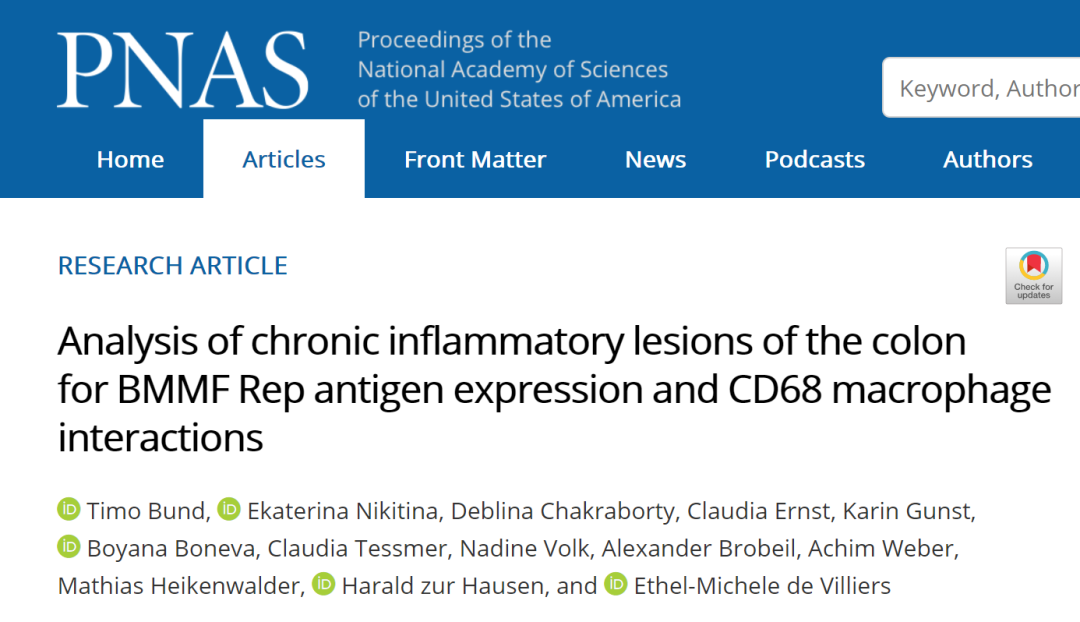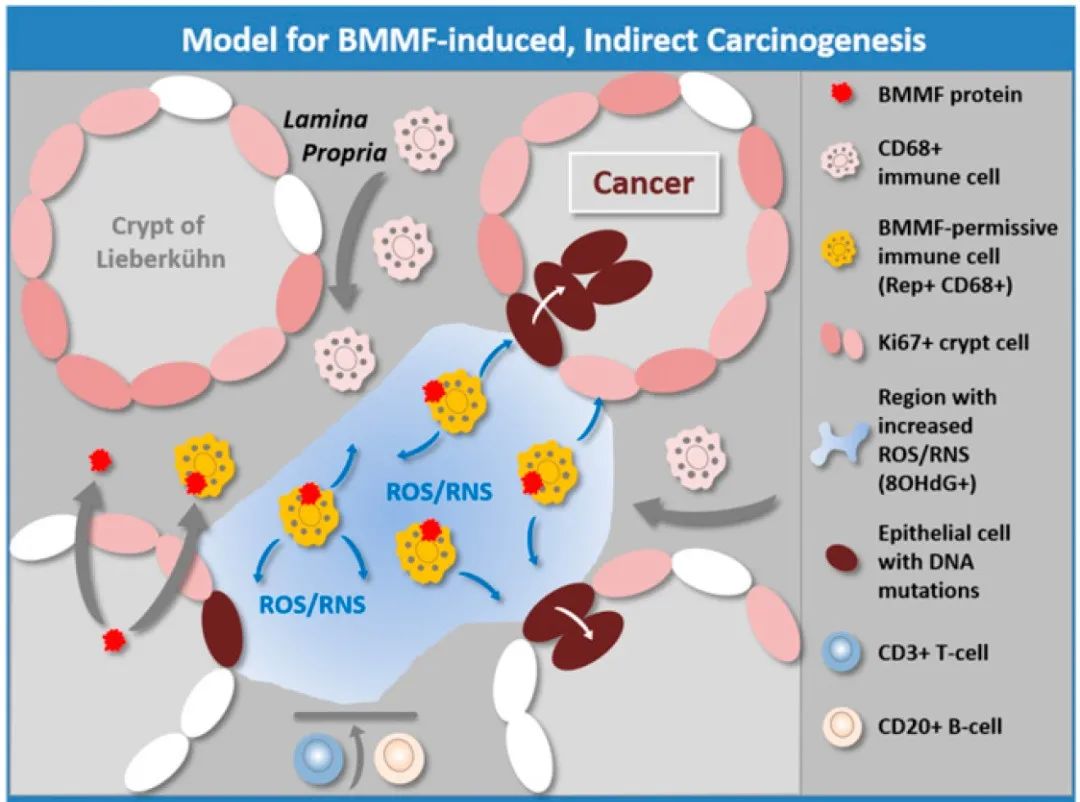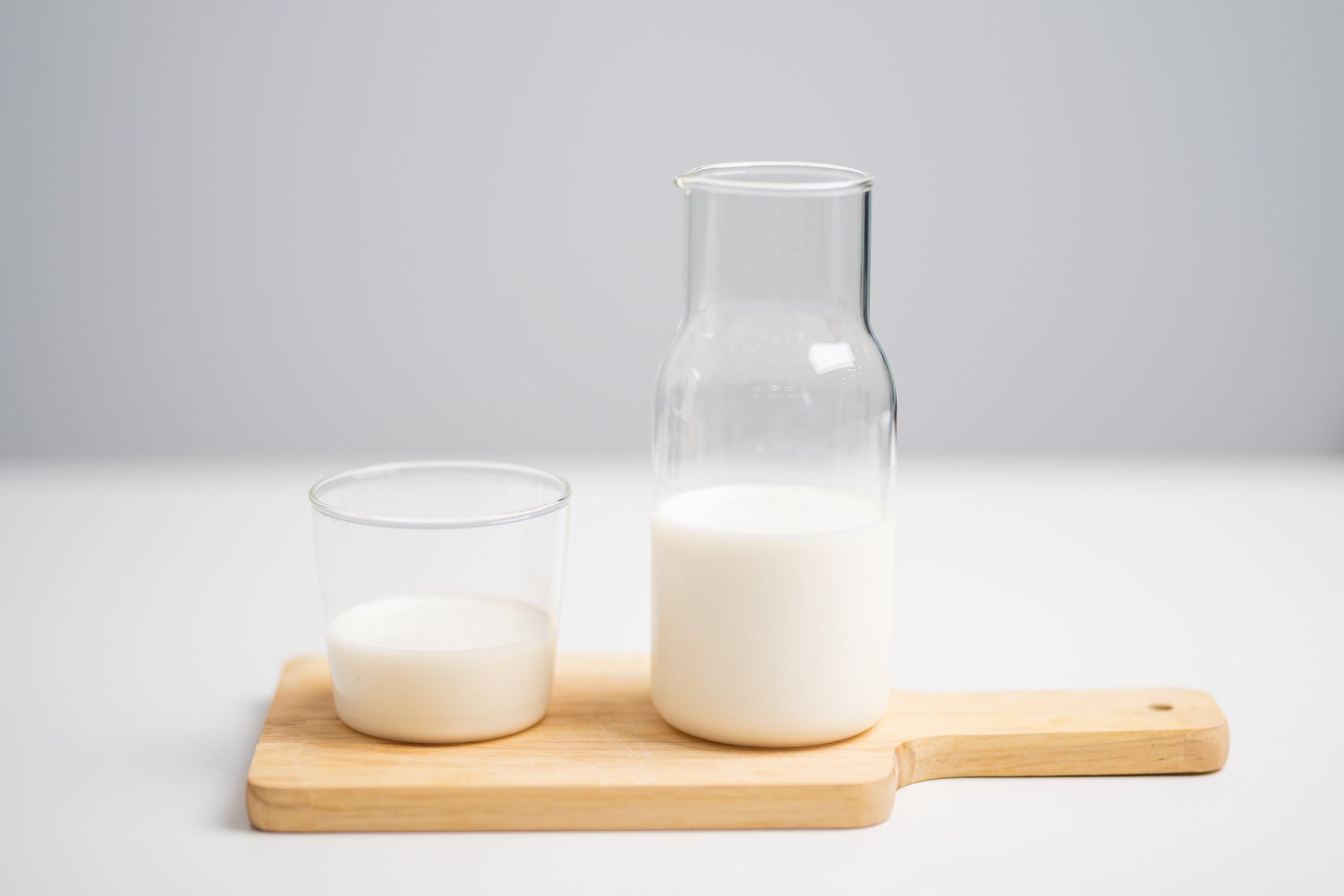最新文章
歸檔
2014 (37)
2016 (42)
2021 (42)

正文
2019年我介紹了諾獎得主Prof. zur Hausen的研究領域:諾獎得主與牛奶
今年果不其然,有結果了。
向zur Hausen教授致敬!
牛奶和牛肉間接致癌的原因:它們攜帶有一種新型病原體
 生物世界
生物世界
·
2021/03/26論文
論文標題:Analysis of chronic inflammatory lesions of the colon for BMMF Rep antigen expression and CD68 macrophage interactions
作者:Timo Bund, Ekaterina Nikitina, Deblina Chakraborty, Claudia Ernst, Karin Gunst, Boyana Boneva, Claudia Tessmer, Nadine Volk, Alexander Brobeil, Achim Weber, Mathias Heikenwalder, Harald zur Hausen, Ethel-Michele de Villiers
查看更多
期刊:PNAS
發表時間:2021/03/23
數字識別碼:10.1073/pnas.2025830118
摘要:Consumption of Eurasian bovine meat and milk has been associated with cancer development, in particular with colorectal cancer (CRC). In addition, zoonotic infectious agents from bovine products were proposed to cause colon cancer (zur Hausen et al., 2009). Bovine meat and milk factors (BMMF) are small episomal DNA molecules frequently isolated from bovine sera and milk products, and recently, also from colon cancer (de Villiers et al., 2019). BMMF are bioactive in human cells and were proposed to induce chronic inflammation in precancerous tissue leading to increased radical formation: for example, reactive oxygen and reactive nitrogen species and elevated levels of DNA mutations in replicating cells, such as cancer progenitor cells (zur Hausen et al., 2018). Mouse monoclonal antibodies against the replication (Rep) protein of H1MSB.1 (BMMF1) were used to analyze BMMF presence in different cohorts of CRC peritumor and tumor tissues and cancer-free individuals by immunohistochemistry and Western blot. BMMF DNA was isolated by laser microdissection from immunohistochemistry-positive tissue regions. We found BMMF Rep protein present specifically in close vicinity of CD68+ macrophages in the interstitial lamina propria adjacent to CRC tissues, suggesting the presence of local chronic inflammation. BMMF1 (modified H1MSB.1) DNA was isolated from the same tissue regions. Rep and CD68+ detection increased significantly in peritumor cancer tissues when compared to tissues of cancer-free individuals. This strengthens previous postulations that BMMF function as indirect carcinogens by inducing chronic inflammation and DNA damage in replicating cells, which represent progress to progenitor cells for adenoma (polyps) formation and cancer.
查看更多
圖片來源:Cats Coming from Pexels


評論
目前還沒有任何評論
登錄後才可評論.




